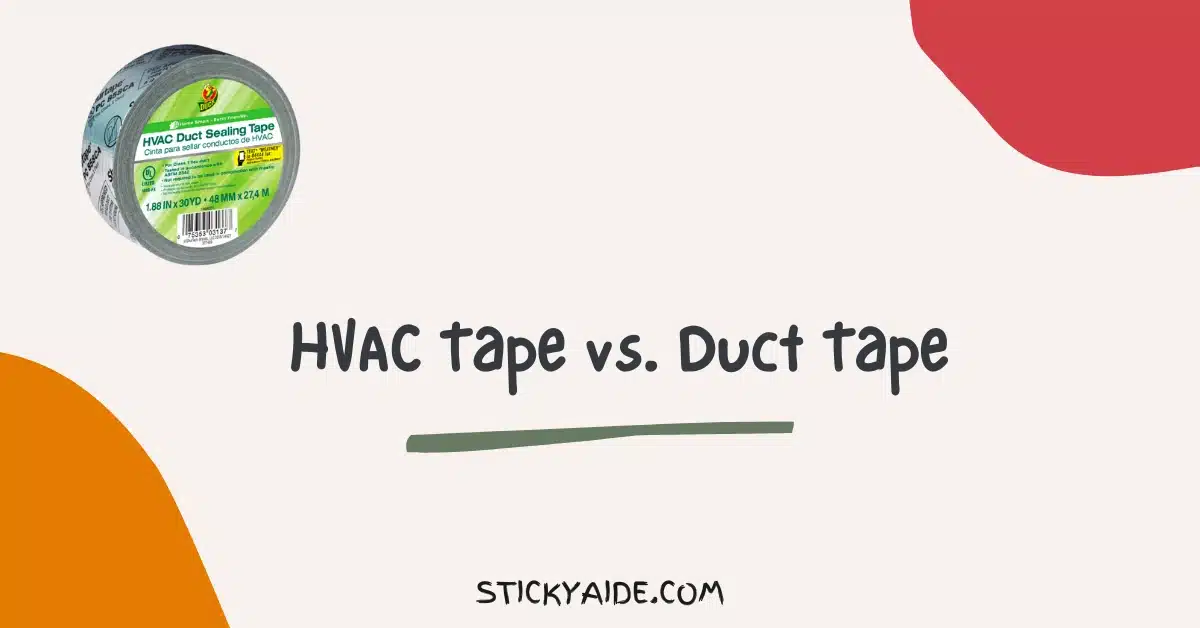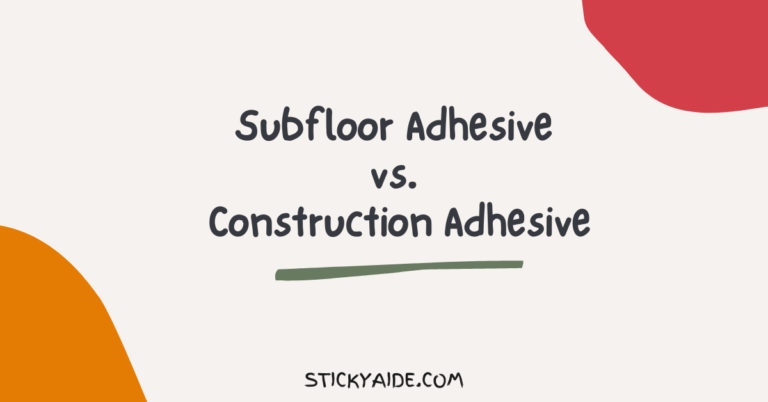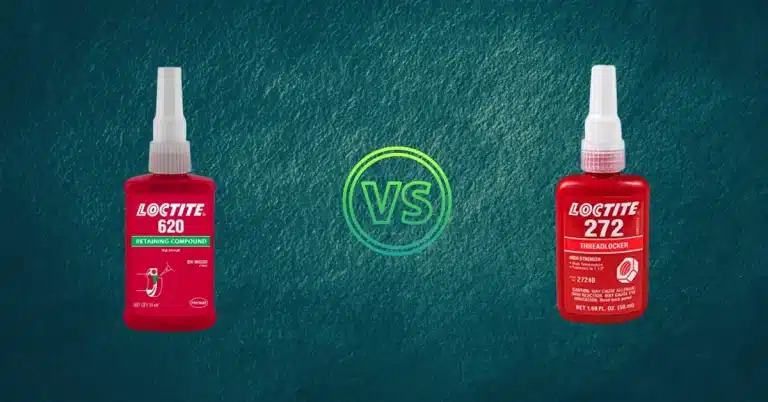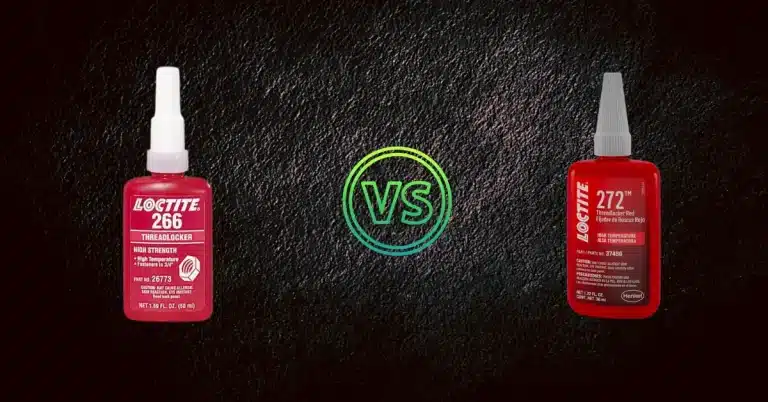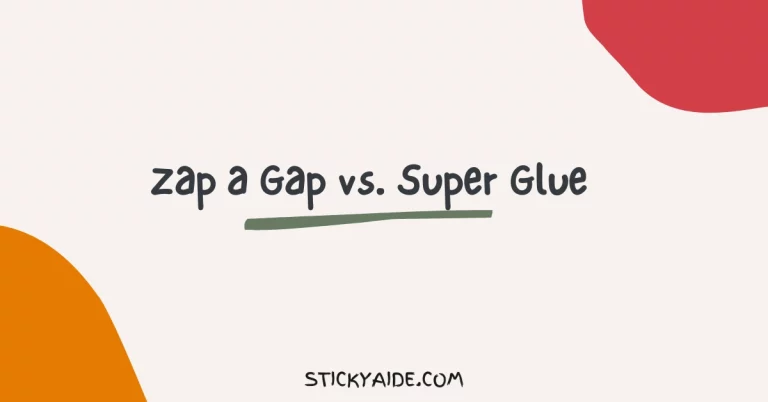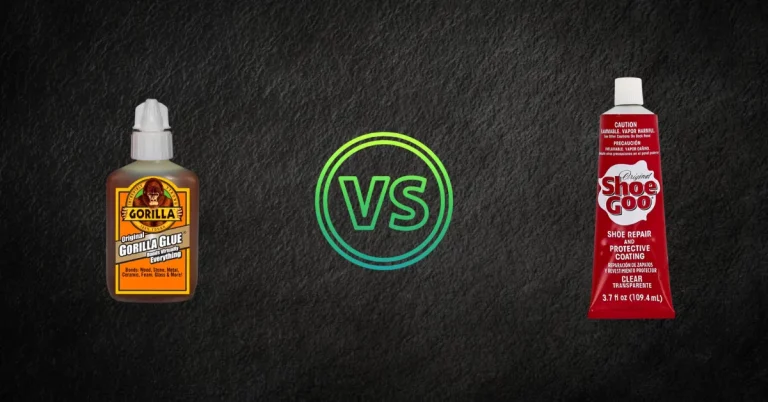You can find various kinds of Adhesive Tapes in the market, and each is suited for different purposes, so you need to find the one that suits your specific purposes.
HVAC Tape and Duct Tape are both commonly used for various purposes.
While they have some similarities, there are also some distinct differences. So, which one should you side with in the battle between HVAC Tape vs. Duct Tape?
Read More: Duct Tape vs. Gaffer Tape
HVAC Tape vs. Duct Tape
Overview of HVAC Foil Tape
HVAC Foil Tape is an Adhesive Tape specifically designed for various heating, ventilation, and air-conditioning systems. You can use HVAC Tape to seal or insulate multiple HVAC system components.
One of the core functions of HVAC Tape is to seal and insulate air ducts, joints, and connections in any HVAC system. If these areas in your HVAC system are not adequately sealed or insulated, there is the risk of air leakage and energy waste.
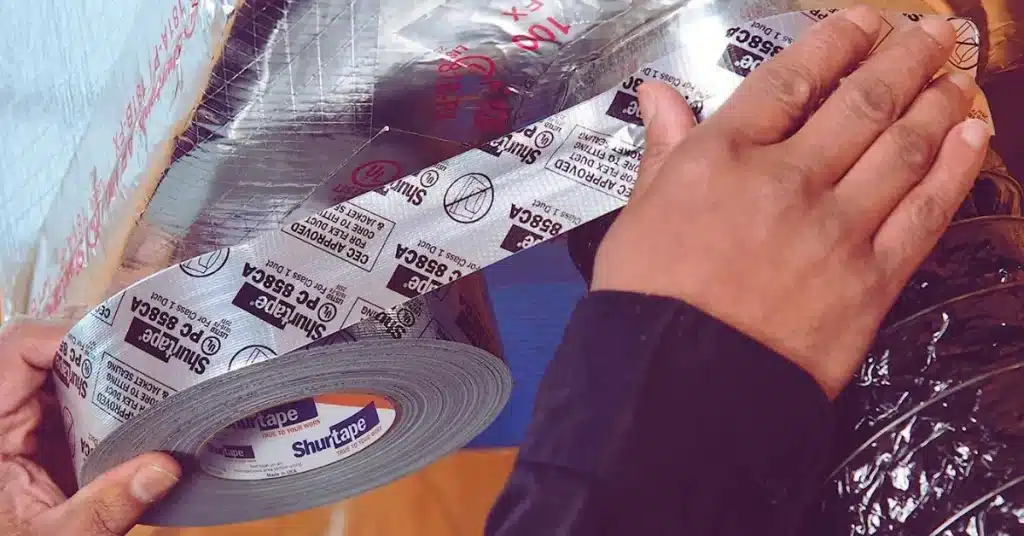
Furthermore, adequately sealed ducts and connections also ensure balanced airflow, reducing air pressure imbalances, which can compromise the system efficiency of your HVAC systems down the line.
One of the critical features of HVAC Tape is that it is heat resistant and can provide an airtight seal. HVAC Systems encounter high heat and fluctuating temperatures, and HVAC Tape tolerates such conditions.
Furthermore, you can also use HVAC Tape for airtight sealing in HVAC systems, ensuring efficient airflow and preventing leaks.
Read More: Duct Tape vs. Packing Tape
Overview of Duct Tape
Duct Tape is one of the most common and versatile tools in the world of Adhesive Tapes. Duct Tape is known for its strength and durability and is versatile in various repairs, fixes, and situations.
Duct Tape usually has a strong fabric backing and is coated with a heavy-duty adhesive of polyethylene or rubber. Duct Tape is an ideal pick for various emergency and heavy-duty repairs.
One of the critical features of Duct Tape is it bonds well with various surfaces, making it an ideal choice for use in multiple scenarios like – automotive repairs, heavy-duty repairs, sealing and temporarily holding objects together, construction works, and many more.
Furthermore, Duct Tape also bonds well with rough and uneven surfaces besides bonding well with smooth surfaces, unlike many other competitors. Duct Tape is also tolerant to moisture, heat, temperature fluctuations, exposure to UV rays, and more.
You can use Duct Tape to seal and waterproof leaky pipes in emergencies until you find a permanent solution.

Read More: Foil Tape vs. Duct Tape
Differences Between HVAC Tape And Duct Tape
Now let’s examine how HVAC Tape and Duct Tape differ.
Composition
HVAC Tape is designed specifically for heating, ventilation, and air-conditioning systems and uses durable materials. HVAC Tape is typically composed using aluminum foil, specialized polymer, or rubber.
On the other hand, Duct Tape is a multi-purpose Adhesive Tape designed for more general uses. Duct Tape typically has a strong fabric backing, usually made of cloth or polyester, and an adhesive layer based on rubber or acrylic.
Adhesive Strength
HVAC and Duct Tape have excellent adhesive strength, but their practical uses vary.
You can use HVAC Tape to seal joints, seams, and connections in HVAC systems without worrying about its durability or strength.
On the other hand, Duct Tape is known for its bonding strength and initial tackiness. You can use Duct Tape for various emergency, heavy-duty repairs. However, it may lose its adhesive properties over time, especially if exposed to extreme weather conditions.
Heat Resistance
HVAC Tape is specifically designed to withstand high temperatures typically encountered in air conditioning systems.
On the other hand, while Duct Tape is tolerant to moderate temperatures, its not suitable for prolonged exposure to high heat.
Compliance and Pricing
HVAC Tape is designed with industry standards and compliance for HVAC installations. HVAC Tape undergoes thorough and rigorous testing to meet its specific criteria. HVAC Tape is also comparatively pricier than Duct Tape.
On the other hand, Duct Tape is not designed or tested to comply with HVAC systems. It will also be relevantly cheaper than HVAC Tape.
Read More: Gorilla Tape Vs. Duct Tape
Is HVAC tape the same as duct tape?
No, HVAC tape and duct tape are not the same.
While they may have similar functions, HVAC tape is specifically designed for sealing and joining components in heating, ventilation, and air conditioning systems, while duct tape is more commonly used for general-purpose applications.
HVAC tape is typically more durable and resistant to higher temperatures than duct tape.
Can you use HVAC tape instead of electrical tape?
While HVAC tape and electrical tape share some similarities, they are designed for different purposes. HVAC tape is primarily used for sealing and joining components in heating, ventilation, and air conditioning systems.
On the other hand, electrical tape is specifically designed for insulating and protecting electrical connections. While HVAC tape may offer some degree of electrical insulation, using it as a substitute for electrical tape in electrical applications is not recommended.
It’s always best to use the appropriate tape for each specific purpose to ensure safety and performance.
Final Thoughts
So, which one should you side with in the battle between HVAC Tape vs. Duct Tape? It depends on you and your specific purposes since these Adhesive Tapes are designed for different purposes.
HVAC Tape is designed for sealing, insulating, and meeting other demands of HVAC systems. Furthermore, it has enhanced durability and heat resistance and complies with industry standards. If you need Adhesive Tape for your HVAC System, HVAC Tape is the best pick.
On the other hand, Duct Tape suits you better if you’re looking for a more general-purpose Adhesive Tape. Duct Tape is strong and durable, versatile when it comes to materials it bonds well with, and it also bonds well with various surfaces.

